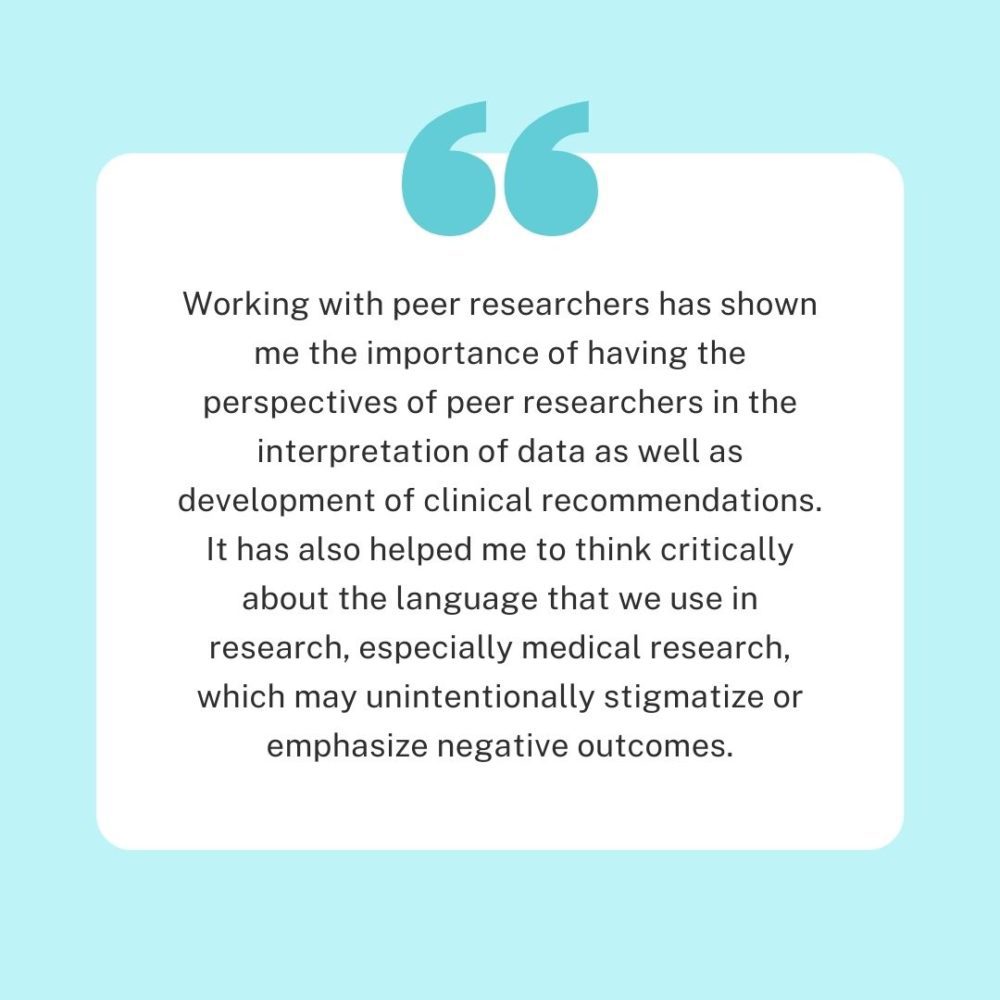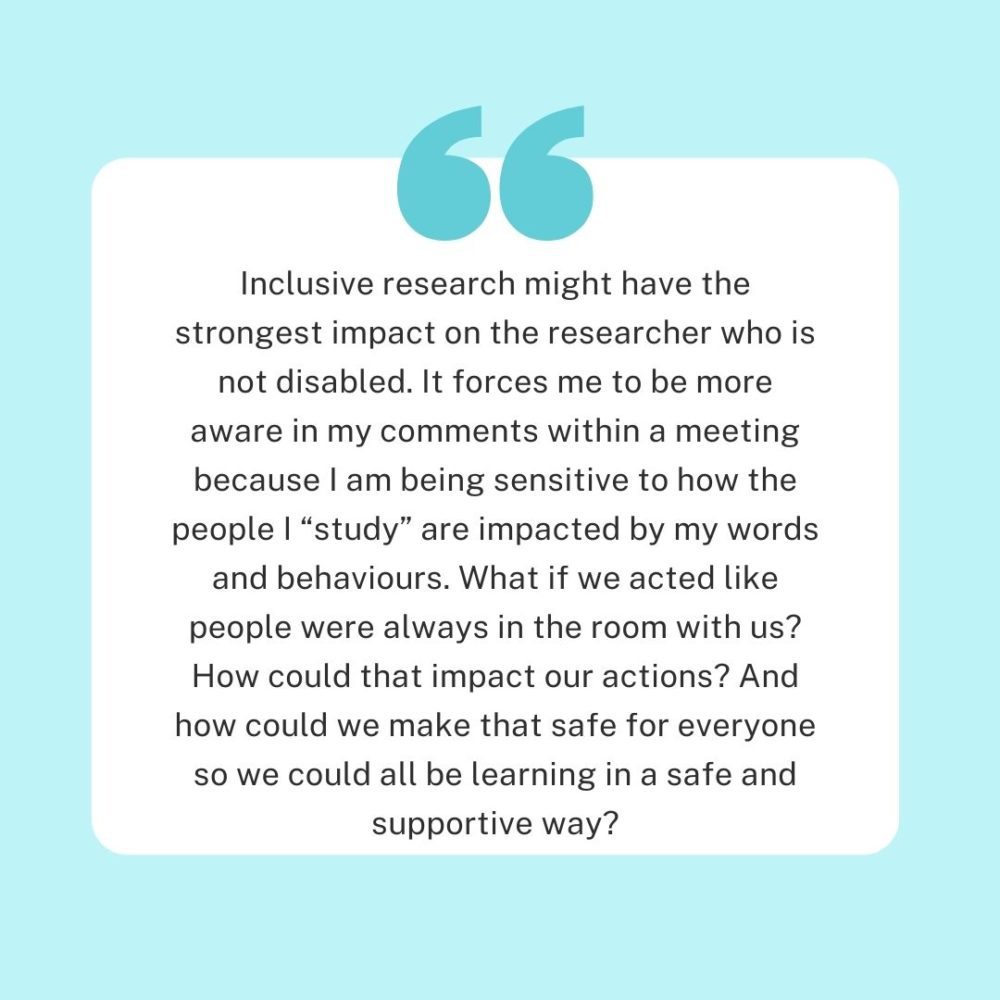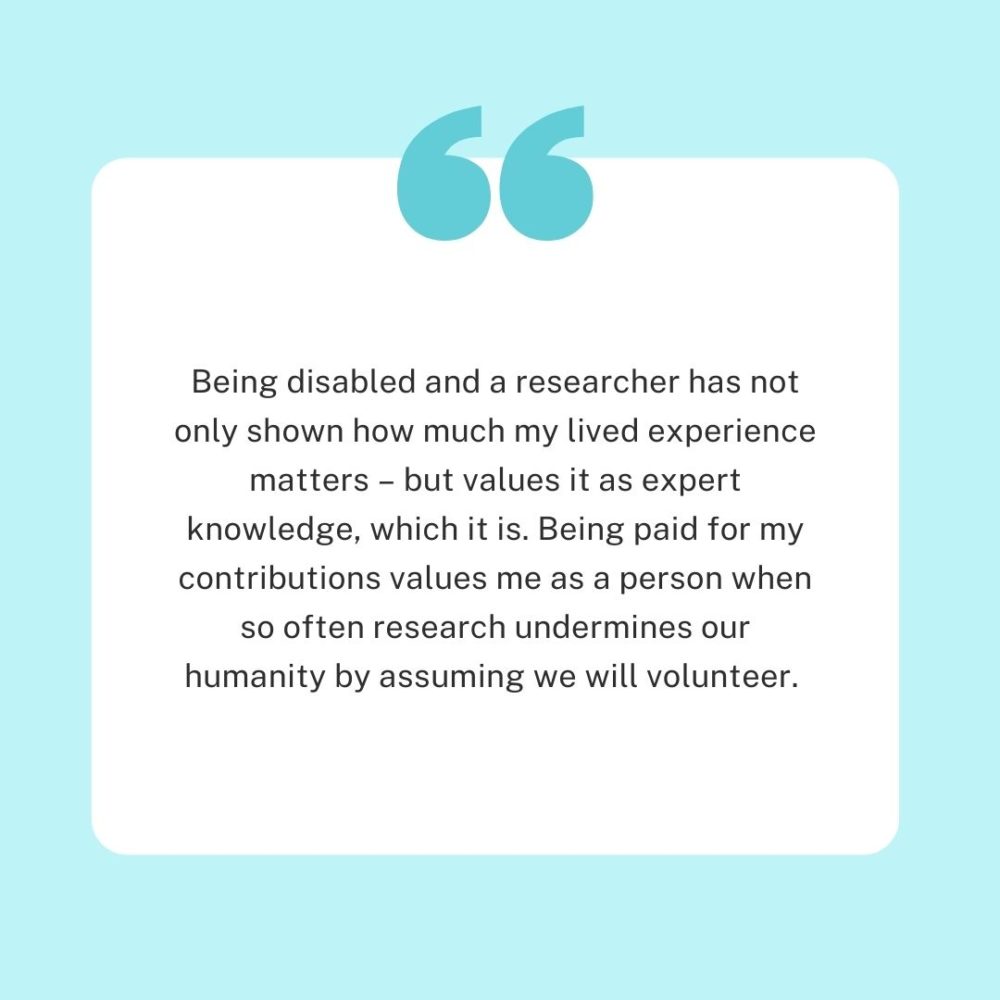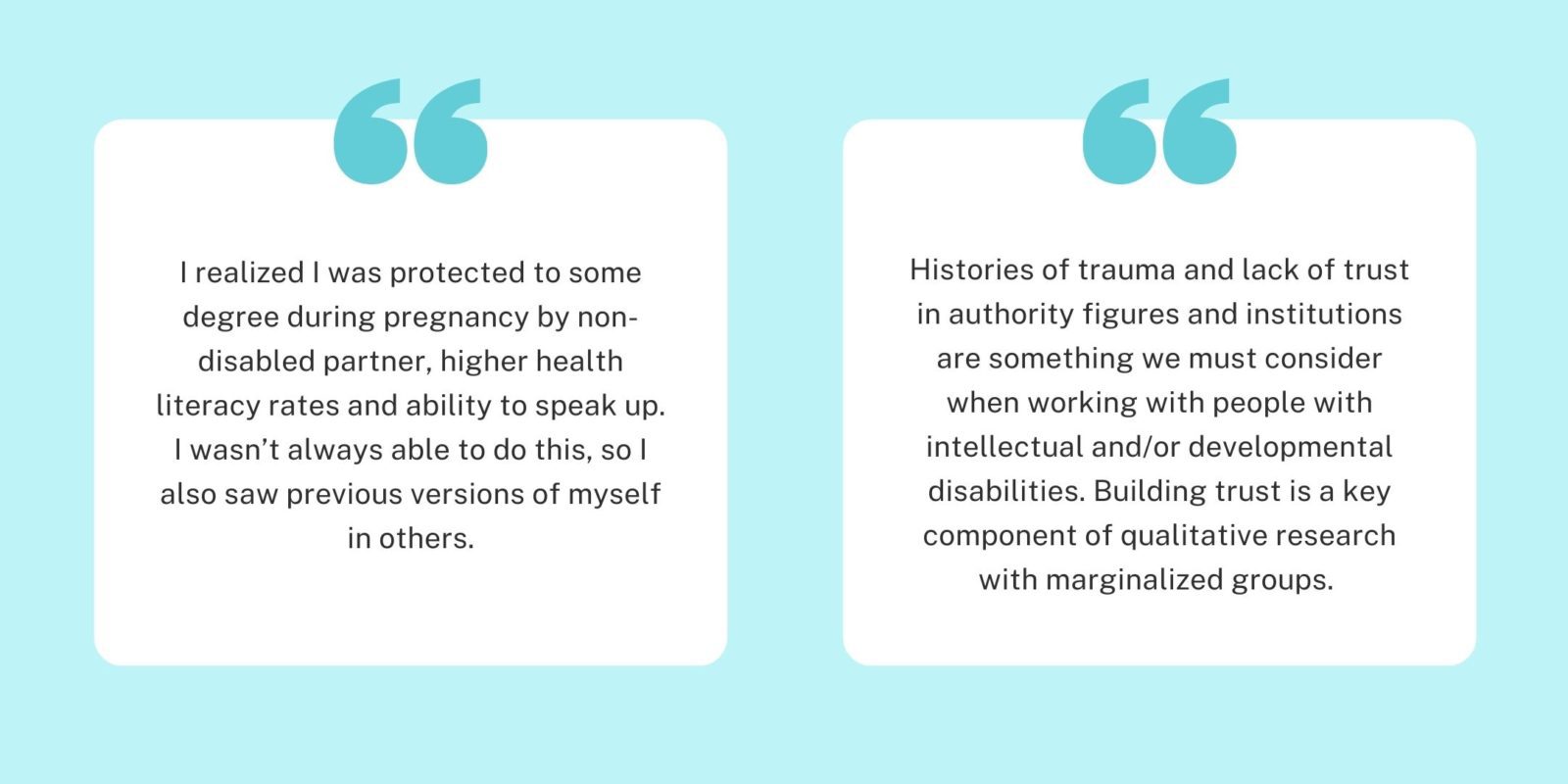Canada has a dark history of mistreating disabled people in health care and research – women with disabilities suffered forced sterilization; children with intellectual disabilities at Willowbrook School were purposefully given hepatitis purportedly to advance the understanding of the disease. These are not isolated examples; the abuse of disabled people was rampant. Even today, disabled people face immense barriers to participating in society. They are less likely to be employed and of those employed, income levels fall short of those without disabilities, especially for women. Disabled people also have a greater likelihood of living in poverty.
This historical perspective, and the disparities that persist, highlight the need for a new approach to health research – an inclusive approach that conducts research and makes decisions with – not just for – people with disabilities.
This approach heeds the call of disability activists: “Nothing about us, Without us.”
Progress to involve and engage patients and people with lived experience in health research is evolving. Community-based research approaches have their roots in social sciences and have evolved through the Strategy for Patient-Oriented Research in Canada, Involve in the United Kingdom, and the Patient-Centered Outcomes Research Institute in the U.S. Patient-oriented research approaches encourage people with lived experiences to contribute as advisors, leaders and specialists and add important context to research.
There is still much to do, however, to ensure research is truly inclusive. Often, people with lived experience are unpaid volunteers, assuming they have the financial and social resources to spare time for research. The conditions for engagement make many assumptions – in-person meetings, commitments during hours of employment, inaccessible venues and high levels of health and research literacy. Often, they are asked to relive difficult and traumatizing experiences to inspire action for change or in the hope that others will not suffer a similar fate.
Inclusive approach
These issues highlight a need for a different, inclusive approach to health research. This approach accommodates individual and group needs and considers their history and current status in society. An inclusive approach engages the communities affected in all aspects of the research in ways that meet them where they are. We summarize some of the lessons learned from a three-year study collaborating with people with disabilities and disability researchers focused on pregnancy-related health. As a team, we grew personally and professionally in ways we did not imagine. The personal reflections of the authors are highlighted in the boxes throughout this article.

Our work focused on understanding the pregnancy-related health of people with physical, sensory, intellectual and/or developmental disabilities in Ontario. It involved examining pregnancy and birth outcomes in people with disabilities using health records data combined with one-on-one interviews to understand pregnancy-related care experiences. Our approach had two parts. First, we incorporated community perspectives to advise on study design and implementation, and, this in turn, ensured we supported study participants who shared pregnancy- care experiences. An advisory committee included representation from various disability communities, such as the deaf or hard of hearing, those who are blind or with vision loss and those with spinal cord injuries, cerebral palsy, autism and fetal alcohol spectrum disorder. They provided advice on study recruitment, accommodations, interpretation of qualitative and quantitative findings, knowledge translation and dissemination. For the researchers on the team, working with the disability community made us more aware of the language we used in conducting and reporting research and how research outcomes need to be framed in ways that support rather than stigmatize.
Second, we hired two peer researchers who identify as disabled, one of whom was also a parent. The peer researchers were hired as employees of the university and compensated for their contributions. They interviewed the study participants to create safe spaces for study participants, many of whom had traumatizing and difficult experiences during pregnancy, delivery and in the postpartum period. The peer researchers advised on ways to create accessible materials and developed videos about study findings designed to be accessible for disabled people.

Learning together
We learned a lot through the advice provided by the disability community, including that there were widespread fears that data could be used inappropriately by health providers or social services. For example, parents with intellectual and/or developmental disabilities often have had newborn children taken by child protection services shortly after birth. Concerns like these reminded the team to be careful in how our words reinforce the medical model of disability, which sees disability as a problem that needs to be fixed instead of the social model of disability, in which people are disabled by barriers in society. There were times when recalling traumatic pregnancy-care experiences were harmful to team and advisory committee members, highlighting the need to provide emotional support to the research team and collaborators throughout the project. Incorporating community perspectives from the start can help frame the research, report it differently and prevent further marginalization of these communities. Our approach is not without limitations. For example, we were not able to fully engage people with intellectual disabilities, who often experience the greatest disparities in pregnancy and birth outcomes and we could have done more to make our interactions more accessible.

The path ahead
The pandemic has shaken trust in health institutions, especially for disabled people, and stresses the need for different, engaging and trauma-informed ways of work. Universities and health-care institutions need to adapt by providing the infrastructure to support meaningful engagement of people with lived experience (e.g., flexible compensation processes).
One thing is clear – there is a moral and ethical responsibility to work hand-in-hand with the disability community in health research. Disabled communities, which have long been and in many ways continue to be marginalized, must be actively involved in research. It is imperative to engage disabled communities in discussions of how research findings are used – for better or worse – in health and social policy decision-making. As researchers, we hold significant power as the keepers of knowledge and this brings significant responsibility to do research with the communities affected by our work.



The comments section is closed.